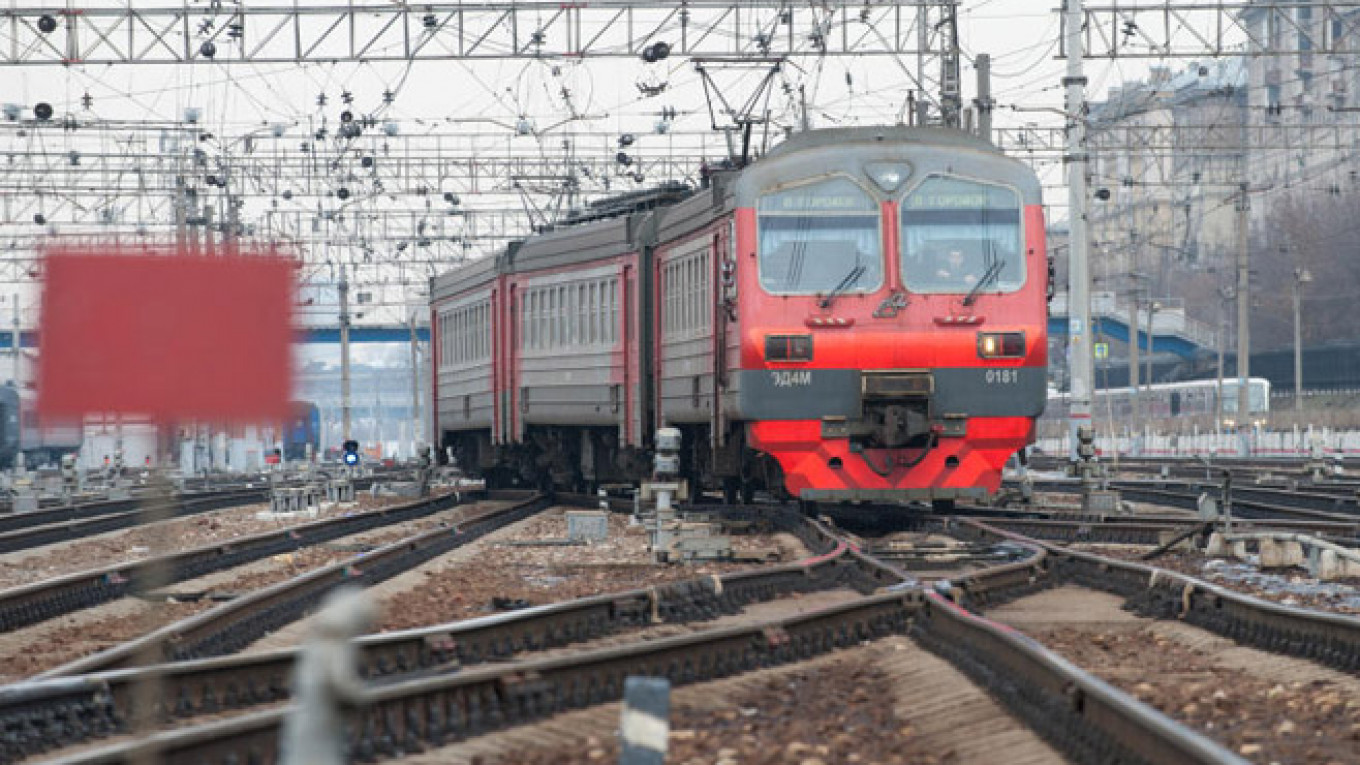The government has stepped up efforts to save suburban trains across Russia by telling regional authorities they will not receive subsidies for road building until they restore local train services, the Vedomosti newspaper reported Tuesday citing two unidentified federal officials.
The move comes after Russian President Vladimir Putin slammed the government earlier this year for allowing the cancellation of hundreds of loss-making local passenger trains.
But if Russia's heavily indebted regional governments are unable to pay for train services, the scheme could lead to cuts in federal spending on Russia's often decrepit road network.
The government plans to allocate 60 billion rubles ($1.2 billion) this year to regional authorities for road construction, according to Vedomosti. But under the new scheme agreed by the government last month, local authorities will receive money only if a government commission on transport, chaired by Deputy Prime Minister Arkady Dvorkovich, verifies that the region is adequately funding suburban train services, an unidentified official told the newspaper.
So far 49 of Russia's 83 regions have been granted approval by the commission, Vedomosti reported, citing documents from commission meetings in April. But those regions where suburban trains were canceled wholesale have yet to be approved, the paper said.
Local governments are responsible for compensating losses from local train services, most of which are unprofitable. But with regional government debt already above 2 trillion rubles ($40 billion), many local authorities have failed to pay, which has prompted some train operators to simply scrap services.
Natalya Zubarevich, a professor at Moscow's Higher School of Economics, told Vedomosti that the government, which is facing falling revenues amid an economic recession, could be simply looking for a way to cut spending on roads.
A Message from The Moscow Times:
Dear readers,
We are facing unprecedented challenges. Russia's Prosecutor General's Office has designated The Moscow Times as an "undesirable" organization, criminalizing our work and putting our staff at risk of prosecution. This follows our earlier unjust labeling as a "foreign agent."
These actions are direct attempts to silence independent journalism in Russia. The authorities claim our work "discredits the decisions of the Russian leadership." We see things differently: we strive to provide accurate, unbiased reporting on Russia.
We, the journalists of The Moscow Times, refuse to be silenced. But to continue our work, we need your help.
Your support, no matter how small, makes a world of difference. If you can, please support us monthly starting from just $2. It's quick to set up, and every contribution makes a significant impact.
By supporting The Moscow Times, you're defending open, independent journalism in the face of repression. Thank you for standing with us.
Remind me later.






